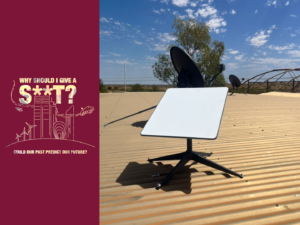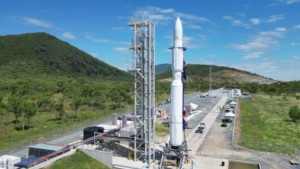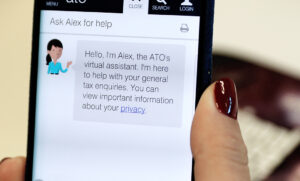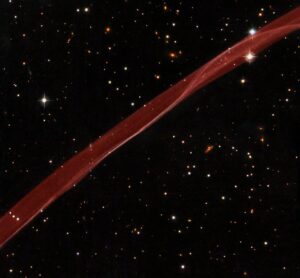Australia is one of two OECD countries in the world that doesn’t have a national space agency.
The other is Iceland.
This might seem silly to some, given that our people and infrastructure are instrumental in the space missions of other countries.
The European Space Agency relies on a space station in New Norcia to track missions across the Indian Ocean. NASA wouldn’t be able to see into deep space without a tracking facility in Tidbinbilla, ACT.
Australians have advanced technical expertise and live in a prized geographical location.
Should we not be capitalising on these? Should Australia not invest and develop in our own space industry capability?
If you have an opinion, you have until 29 August to make your voice heard.
LAUNCH PAD FOR CHANGE
On 3 August, the federal government released an issues paper that prompts discussion for the review of Australia’s space industry capability.
Hopefully, this review will help develop a national strategy for an Aussie space industry we can be proud of.
The paper, put together by an Expert Reference Group, looks at three key principles.
Capability
What are we good at? And what should we do better?
Development
How can we promote innovation in the Aussie space sector? Where can we find our niche? What risks and opportunities need to be addressed in a national space strategy?
Governance
How do governing bodies align the space-related activities of industry, research and government organisations to maximise the benefit to Australia?
SPACE AROUND THE WORLD
Space missions are no longer oddities, thanks to the development of small, powerful satellites.
A private launch site in New Zealand (whose government established a space agency in 2016) is capable of sending 120 satellites a year into space—that’s one rocket every 72 hours.
The data these satellites ping back to Earth is more and more valuable.
GPS, weather forecasts, broadband. Australians rely on space-related services every day.
So too does our economy. Scientific research, agriculture, the mining and resource sector—none of these could thrive without satellite data.
Then we can think about the implications of the space sector for our national defence, critical infrastructure and even cybersecurity.
We currently rely on space systems and space-derived data from other countries.
But should we?
WE NEED YOU
Think you can help Australia capitalise on opportunities in the global space industry sector?
The Expert Reference Group leading the review is welcoming submissions from stakeholders (yes, that’s you.)
The deadline has been extended to 29 August, so now’s the chance to have your say.
Alternatively, register to attend a roundtable meeting. There’s one being held in Perth on 5 September. Again, registration is due by 29 August.
It is expected that the federal government will make a key announcement regarding the future of the Australian space industry when South Australia hosts the International Astronautical Congress from 25 to 29 September.
Results from the review of Australia’s space industry capability are expected in early 2018.








